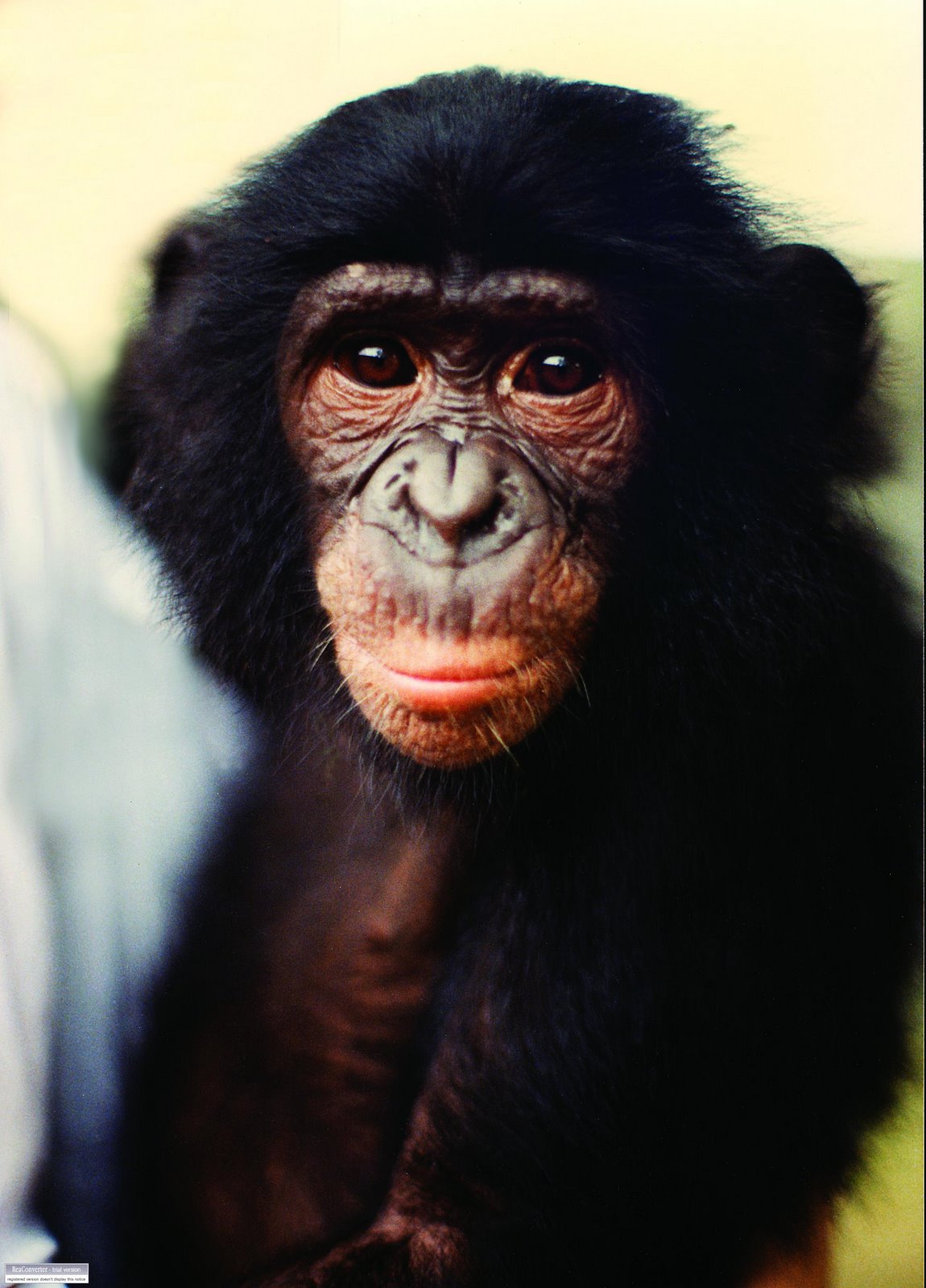 An important factor of long-term success for conservation initiatives in developing countries is having respectful human relationships, based on an understanding of the culture. This grassroots approach is voiced by Jo Thompson, who works directly with, and for, the local population where she studies wild bonobos:
An important factor of long-term success for conservation initiatives in developing countries is having respectful human relationships, based on an understanding of the culture. This grassroots approach is voiced by Jo Thompson, who works directly with, and for, the local population where she studies wild bonobos:"Having a long-term presence and association with the project identified with one consistent outside international person has strengthened the Project with local people. (True story: in 2003 the Administrateur du Territoire Zone Monkoto told John Hart that he had known me since I was a small child. He came from Dekese and had known me for many years in the Lukuru. Later, John was quick to ask me, in all seriousness, how long I had been working/living in DRCongo. He believed the story literally, but the comment was figurative and demonstrated our deep history together.) This capacity has provided an intimate understanding of both biological and social knowledge. This person-to-person familiarity provided the foundation for working to encourage the revival of traditional land-use practices and, particularly the practice of seasonal hunting laws and rotation of hunting areas.
"....our objectives are focused very closely to the ground and efforts to identify regional threats, facilitate implementation of a locally appropriate framework for protection, and participate with the local people in the conservation of bonobos and their habitat. We strive to change human behaviors that are contrary to bonobo conservation, encourage behaviors that support bonobo conservation, and minimize protected species loss. It is our investment in the long-term relationships with the people of the Lukuru and their own observations of the situation that has motivated them to work for conservation."
Photo by R. Ross












No comments:
Post a Comment